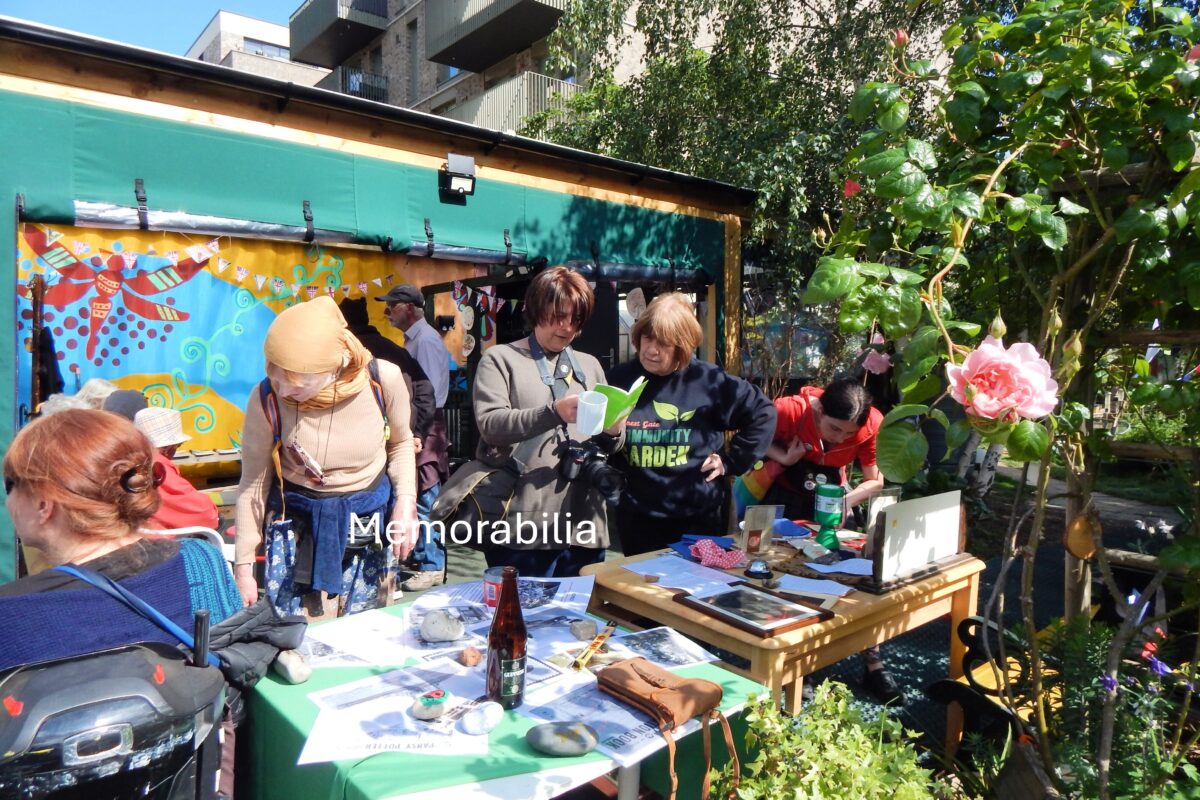Around 70 people attended our VE Day celebration. It began with Peter Williams telling us about Newham during the war: the evacuation of children, the phony war, the blitz, the prisoner of war camps on Wanstead Flats – one for Italians, the other for Germans. There were anti aircraft guns on the Flats too and barrage balloons. Forest Gate suffered quite a bit of bombing. Earlham primary school was built on a site where a V2 landed, destroying houses and killing 19 people. Peter reminded us that it was not just a British war, but millions from the Empire, as it was, fought alongside.
Mark Gorman told us about the war’s hesitant ending. Hitler committed suicide in his Berlin bunker on 30 April 1945, though sporadic and pointless fighting continued. The formal surrender document was signed at General Eisenhower’s headquarters in Reims, France, on May 7, but Stalin insisted the signing had to take place in Berlin, and so in Berlin on May 8, it was signed again, this time with Russian signatories too.
Joyce who is 94 told us about her evacuation in 1939.The walk to the train station by the school children was done several times without the children understanding why. At the final walk, they got on a train, thinking just for a short trip, but this was the evacuation, and they went to foster parents in the countryside. She had a good time with her foster parents, but we know of others who were abused, used as servants or free labour. It was the luck of the draw. My Uncle Stanley had a terrible time, but his sister, Auntie Anne, fared much better. Over the period of the phony war, when it seemed there was no reason to stay in the countryside, many children returned home. And then the blitz began.
We were then invited to tell the people around us about family memories of the war. My personal war started grandly. I was born in July 1943 in a stately home with 16 acres of grounds. This was Whatton House, in the village of Long Whatton, Leicestershire. It is still there, and the gardens are open to the public every so often. You can book a wedding at the grand house.
Actually, it was not quite so grand in wartime. Around 2400 babies were born at Whatton House over the course of the war (1939 to 1945), as it was requisitioned as a maternity hospital. I of course have no memories at all of this stately beginning. It has been downhill ever since.
My father tried to join the army in 1939, but was refused as he was a carpenter, one of the reserve trades. He was sent to Looe in Cornwall, working on pocket destroyers. He also worked making barracks for soldiers; the roofs, walls and floors were made in the factory and then assembled on site. But his biggest job was working on the Mulberry Harbours.
These were for D Day, 6 June 1944, the day planned for the Allied landing on the beaches of Normandy, the Western front, to begin taking back France and marching on to Germany. The Mulberry Harbours were concrete barges connected together to allow the tanks, lorries, armoured vehicles and big guns to roll ashore, as the ships could get no closer than a few hundred yards from the beaches.
We had a table of memorabilia: photos of fathers in uniform, one of a Lancaster bomber, diary entries and memories of the war and of joy at its ending. Jazanne Arts had an old suitcase full photos, a Guinness bottle and a tub of Brylcreem.
Misty on her ukulele led us in songs of the time including: Pack up your Troubles, We’ll meet Again, White Cliffs of Dover, A Long way to Tipperary, Don’t Fence Me In, and Somewhere over the Rainbow.
And then food and drink was served, while we chatted informally on a sunny day, 80 years after the end of World War Two. A long time ago, but there are too many wars being waged now and too many arrogant dictators to allow us to believe it could never happen again. Adolph Hitler was voted into office in 1933. In just 12 years, he was the prime cause of 50 million deaths. No wonder, they danced and embraced on 8 May 1945 when the war ended. But after the party, there was so much to do, to rebuild London, to rebuild wounded souls, to mourn those who did not return and those who died in the blitz.

